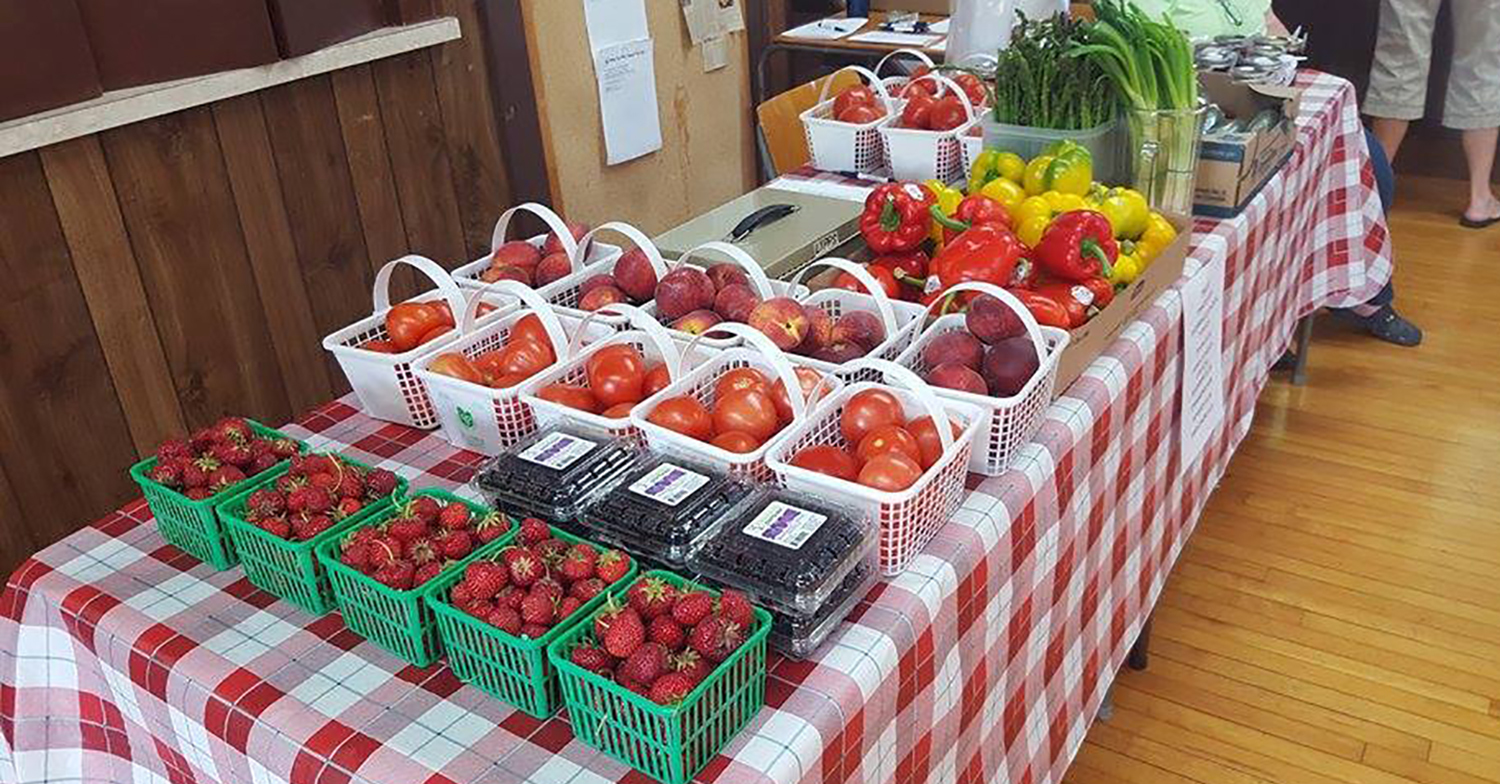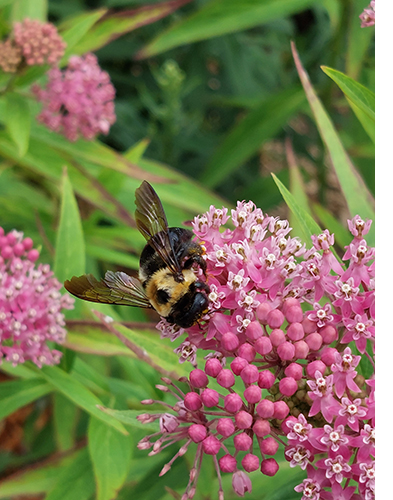
By Rev. Chris Brouillard-Coyle
I admit, summers in our region are wonderful thanks to the hard work of farmers and gardeners.
We start with fresh asparagus which quickly leads to strawberries. Through the summer we have other berries and fruits, tomatoes, peppers, onions, zucchinis, and, of course, corn. Essex county has some of the best corn there is!
As summer moves into fall, we are blessed with apples, pears, and peaches. By the time Thanksgiving arrives, there is a bounty of squash available at farmers markets.
There is something about local produce that warms our hearts and nourishes our souls. We are familiar with these flavours and all the ways in which we transform these gifts of creation into family recipes. My grandmother’s apple cake recipe is one that has been passed down through generations and every descendent ends up with something a bit different and yet wonderfully tasty. God is good and we give thanks.
Now the serpent was more crafty than any other wild animal that the LORD God had made. He said to the woman, ‘Did God say, “You shall not eat from any tree in the garden”?’ The woman said to the serpent, ‘We may eat of the fruit of the trees in the garden; but God said, “You shall not eat of the fruit of the tree that is in the middle of the garden, nor shall you touch it, or you shall die.” ’ But the serpent said to the woman, ‘You will not die; for God knows that when you eat of it your eyes will be opened, and you will be like God, knowing good and evil.’ (Gen 3:1-5)
The creation stories powerfully illustrate the intentionality and love God put into this world. These stories point to the interconnectedness of all things, light and darkness, rain and sun, earth and sky, all work together in harmony to provide what is needed for all things to thrive.
 There is truly wisdom at the heart of creation which is designed to help sustain the world God has made. There is truly wisdom at the heart of creation… and then the serpent tricks the first humans by promising them they too can be wise like God. They too can know good and evil. They too can eat and be transformed in ways that give them power and privilege over the rest of creation.
There is truly wisdom at the heart of creation which is designed to help sustain the world God has made. There is truly wisdom at the heart of creation… and then the serpent tricks the first humans by promising them they too can be wise like God. They too can know good and evil. They too can eat and be transformed in ways that give them power and privilege over the rest of creation.
We call this radical, culinary indiscretion, the first sin. By taking and eating of the fruit of that one tree, the first humans changed our relationship to the world. With that defiant act, humanity could no longer fully embrace the symbiosis God had intended. The consequences of that action continue to impact our relationship to God and the world.
As much as we may enjoy local produce, the lived reality has been transformed by globalization, introducing previously unknown products into our diets that are prematurely picked and left to ripen as they travel the world. Many farms are profit-driven resulting in efforts to control nature with manufactured seeds, fertilizers, pesticides, herbicides, and practices that undermine the symbiosis of nature. This has changed the produce. How many older folks realize that tomatoes, for example, no longer taste as they once did?
Humanity has decided that we know best and can use science to recreate the world in the ways we want. This plays out in ways large and small. How much time have folks spent this summer seeking to control our yards because we decided non-native grass continually cut to ensure it doesn’t seed and become unruly, along with non-native annuals and perennials which require more attention and water than native plants, are the ideal for the land we claim to own? In the process, we have changed the eco-system. We have undone what God once did in creation for this region. We have become the creators without consideration for the implications for the birds, bees, butterflies, animals, and insects which also inhabit this area. We have acted like God, in how we interact with our world. That first culinary indiscretion continues today.
When will we learn? What will it take for us to appreciate the symbiosis God intended between humanity and creation? This year, the theme for the Season of Creation is “Listen to the Voice of Creation”. What might we learn if we stopped trying to impose our will on creation and listen to the gifts it has to offer us? Listen to the symbiosis that was built into creation? Listen for the wisdom that God planted in the beginning?
To assist in this journey, Social and Ecological Justice Huron encourages the use of resources from seasonofcreation.org and is supplementing these with sermon suggestions and a book study on “Braiding Sweetgrass: Indigenous Wisdom, Scientific Knowledge, and the Teachings of Plants” by Robin Wall Kimmerer. Regardless of whether you can attend a book study, we highly recommend reading this book for its powerful storytelling and imagery. Our hope is that, through these tools, we can inspire individuals and congregations to listen more deeply to the voice of creation as we seek to safeguard the integrity of God’s Creation, and sustain and renew the life of the earth.
Rev. Chris Brouillard-Coyle is a tri-chair of SEJH and a tri-chair of Justice League of Huron.
RELATED: SEASON OF CREATION RESOURCES prepared by Social&Ecological Justice Huron, including LISTEN TO THE VOICE OF CREATION: SERMON SUGGESTIONS
Photos: Rev. Chris Brouillard-Coyle